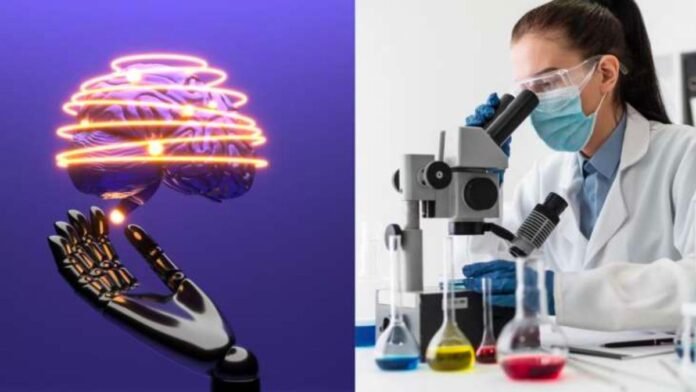In order to help medical experts detect cancer, Google and the US Department of Defense have partnered to develop an Augmented Reality Microscope (ARM) that is powered by AI. This innovative application has shown potential as a useful resource for pathologists, particularly those who don’t have easy access to second opinions.
The ARM consists of a computer tower hosting the AI models, a sizable eyepiece, and a platform for viewing conventional glass slides. The artificial intelligence system is made to find cancer cells on a glass slide using a microscope. Using a vivid green line to identify the precise position of the malignancy, it offers a visual aid. In order to analyze the cancer’s severity, the AI also produces a black-and-white heat map on the monitor that shows the cancer’s boundaries in pixelated detail.
The chief medical officer of the Defense Innovation Unit (DIU) at the Department of Defense, Dr. Niels Olson, made it clear that the ARM is meant to supplement pathologists’ knowledge, not to replace it. A significant tool for pathology residents in training, the microscope may prove especially useful in smaller, more remote labs.
Aashima Gupta, the global director of healthcare strategy and solutions at Google Cloud, disclosed that the company has created four ARM algorithms that can recognize breast cancer, cervical cancer, prostate cancer, and mitosis. Since neither Google workers nor infrastructure have access to the data used to train these AI models, privacy and security are guaranteed.
In the approaching fall, the DIU intends to make the ARM available to all federal users via the General Services Administration website. Health systems may have to pay $90,000–$100,000 for the device.
Google’s work with the US Department of Defense built an AI-powered Augmented Reality Microscope to assist pathologists detect cancer more accurately.. This ground-breaking tool has the potential to improve cancer diagnosis capabilities, especially in smaller healthcare and educational environments.
Conclusion:-
Google and the US Defense Department have partnered to develop an Augmented Reality Microscope (ARM) to assist medical experts in detecting cancer. The ARM consists of a computer tower, eyepiece, and glass slide viewing platform. It uses a vivid green line to identify cancer cells and produces a black-and-white heat map to analyze the cancer’s severity. The ARM is meant to supplement pathologists’ knowledge, not replace it, and may be particularly useful in smaller, remote labs. Google Cloud has created four ARM algorithms to recognize breast, cervical, prostate, and mitosis cancers. Privacy and security are guaranteed, and the ARM will be made available to all federal users via the General Services Administration website in the fall. The device may cost $90,000-$100,000.



